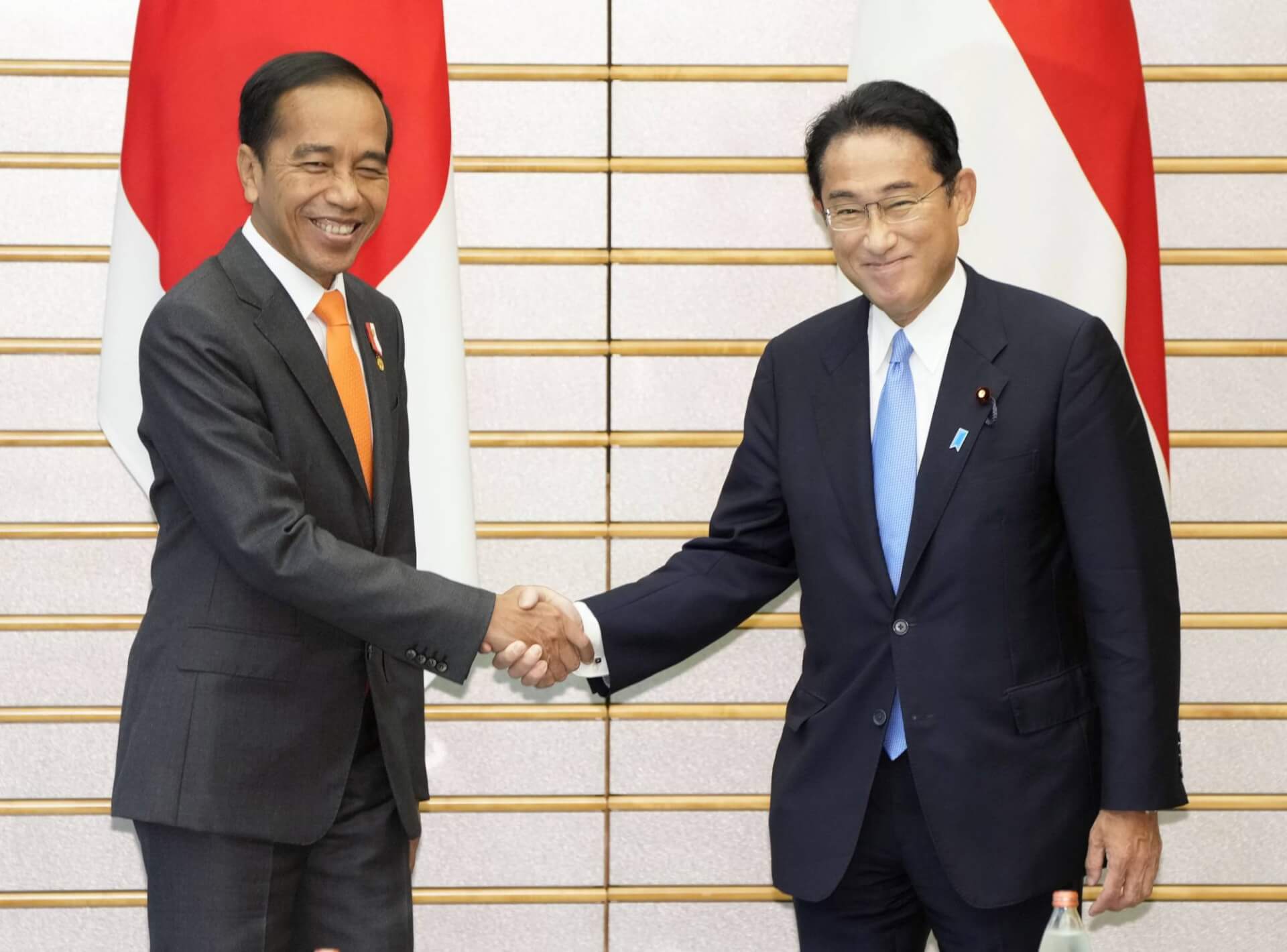During his meeting with Japanese Prime Minister (PM) Fumio Kishida in Tokyo on Wednesday, Indonesian President Joko Widodo, aka Jokowi, announced that Jakarta had lifted its ban on Japanese food imports, which it put in place after the Fukushima nuclear disaster in 2011.
Kishida welcomed the decision by saying that “the lifting of restrictions on food products from the seven prefectures” will “encourage residents in the affected areas.” Following the Fukushima Daiichi Nuclear Power Plant disaster in March 2011, several countries, including Indonesia, banned food imports from seven Japanese prefectures.
Jakarta and Tokyo also pledged to step up efforts to realise a free and open Indo-Pacific (FOIP) to counter China’s growing military buildup. To this end, Kishida announced that the Japanese Self Defence Forces will participate in the Garuda Shield joint military exercises in Indonesia for the first time next month, alongside the United States (US), Australia, and others. “Indonesia shares fundamental values with us as well as strategic goals, it is a strategic partner,” Kishida told reporters. This year’s annual exercise, which is typically held between Jakarta and Washington, will be “significantly larger in scope and scale” than in previous years, the US Navy has said.
Together with Prime Minister Kishida Fumio, President Jokowi held the Japan-Indonesia Summit Meeting. The two leaders reaffirmed their commitment to continue strengthening 🇮🇩🇯🇵 strategic partnership pic.twitter.com/OaFTfNFFmH
— Menteri Luar Negeri Republik Indonesia (@Menlu_RI) July 27, 2022
Kishida added that his administration will loan the Indonesian government 43.6 billion yen ($318 million) for infrastructure projects, disaster prevention, and energy cooperation. “In particular, I invite Japan to support the acceleration of achieving Indonesia’s net zero emission target through advocating for innovative technologies such as hydrogen and ammonia technology,” Jokowi said in his statement.
Jokowi added that both leaders had agreed to changes in an Indonesia-Japan economic partnership agreement, which will be signed later this year. While details have not been specified yet, Jokowi said he requested Tokyo to reduce tariffs on several food products, including tuna, banana, and pineapple and provide greater market access for mango products.
PM Kishida: I had a summit meeting and a joint press announcement with President Joko Widodo of Indonesia. (July 27)@jokowi
— PM's Office of Japan (@JPN_PMO) July 27, 2022
@kishida230 pic.twitter.com/1bn0Ri1ve7
Jokowi also welcomed several new Japanese investment projects in Indonesia. “Several strategic projects that I conveyed to accelerate their completion include MRT Jakarta North-South Phase II and East-West Phase I, West Papua Industrial Estate, expansion of the Patimban Port and Patimban Access Toll Road, and we also discussed the commitment to cooperation for the continuation of the Project. Gas Masela,” he said.
Jokowi, who is chairing the Group of 20 (G20) Summit this year, has also invited Ukrainian President Volodymyr Zelensky to participate in the November meeting in Bali. In what is being perceived as a veiled criticism of Russia, Kishida and Jokowi agreed that all countries should abide by international law and respect a state’s sovereignty and territorial integrity.
That being said, Indonesia is seen as somewhat of a neutral voice in Asia. In fact, late last month, Jokowi became the first Asian leader to meet both Zelensky and Vladimir Putin during the course of the ongoing war. Furthermore, it has repeatedly pushed for the inclusion of Russia in G20 events during its presidency.
in the area affected by the Great East Japan Earthquake and I highly appreciate President Joko's leadership. I will work closely with President Joko towards a successful G20 Bali Summit.🇯🇵🤝🇮🇩 (2/2) (July 27)@kishida230
— PM's Office of Japan (@JPN_PMO) July 27, 2022
During his visit to Tokyo, Jokowi also offered his condolences for the assassination of former Japanese PM Shinzo Abe. Kishida thanked the Indonesian president and said that the country “will continue to defend democracy” and “work of the deceased to strengthen good relations and cooperation with Indonesia.”
Jokowi also met with other Japanese dignitaries on the same day, including Japanese Emperor Naruhito and Empress Masako, Japan-Indonesia Association President Fukuda Yasuo, Japan-Indonesia Parliamentary Friendship League Chairman Nikai Toshihiro, and the CEOs of several Japanese companies.
The two countries will mark the 65th anniversary of establishing diplomatic relations.
Indonesia is the second country to lift restrictions on food imports from Japan in recent months, with Taiwan making a similar decision back in May.

